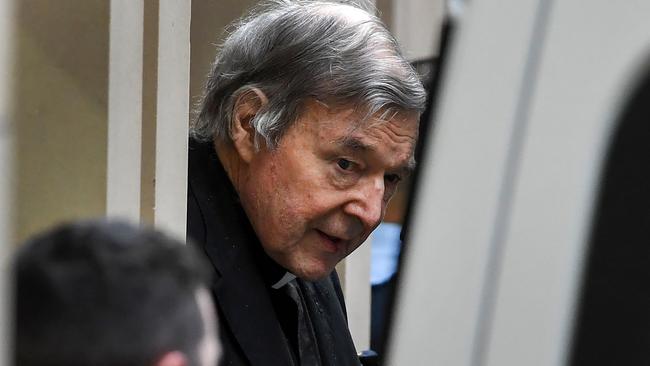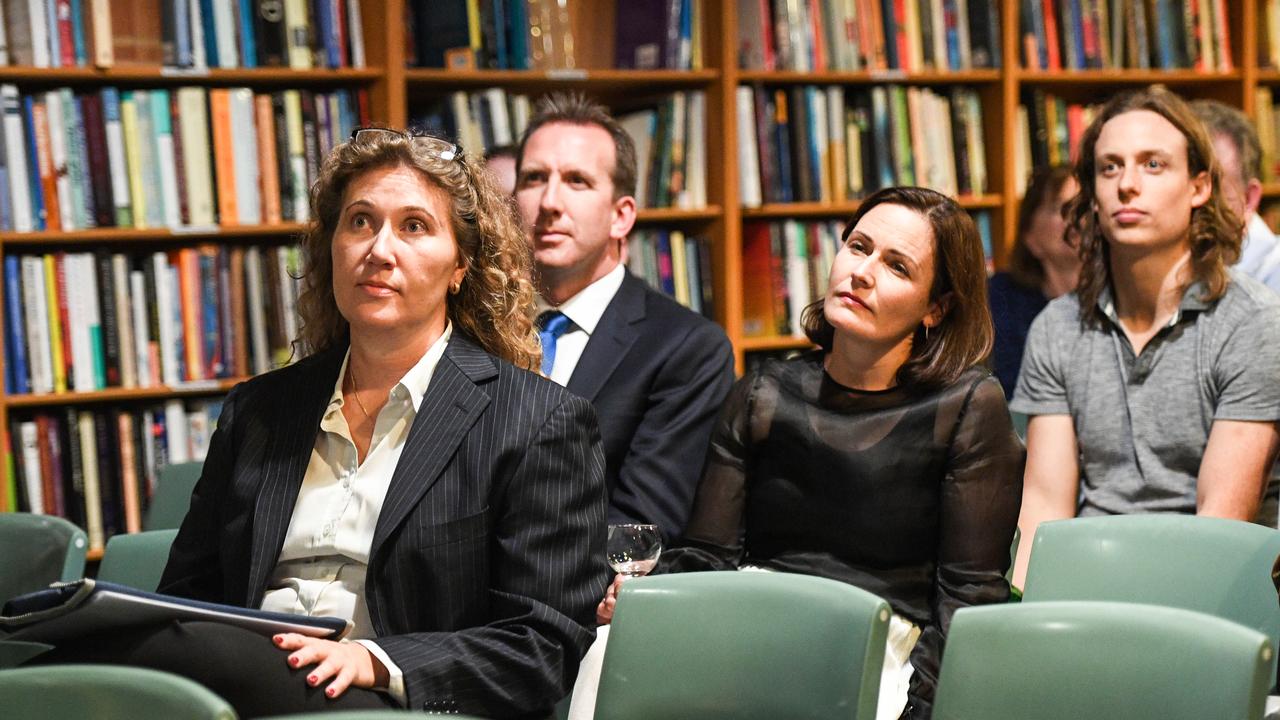Cardinal Pell’s last chance comes down to a matter of minutes
It is not clear what the High Court will do with George Pell. One option is to set him free.

Kerri Judd had a dark day in the High Court on Thursday.
Victoria’s Director of Public Prosecutions stood at the bar table in court one, grappling for hours with what looked like an unbearable lack of weight in the case against George Pell.
It is impossible to say with certainty how the High Court will respond to the prosecutor but her performance was marked with tense exchanges and, at times, what looked like exasperation from the bench. It is now a live possibility that the High Court will intervene and free Pell, ending his six-year jail term one year in.
Judd, police and the complainant will struggle to get the result they will be looking for but the usual caveats need to be applied, given the notorious twists in the Pell matter.
Judd’s oral submissions tell the story of the problems confronting the prosecution, fundamentally on the key question of time and therefore the opportunity for Pell to have offended in the priests’ sacristy at St Patrick’s Cathedral in Melbourne in 1996 and 1997.
Judd has conceded the prosecution could not say specifically how long the complainant took to get to the sacristy after mass, how long the offending lasted and when private prayer time ended.
These facts are crucial to whether or not Pell could have had the time to molest the two choirboys, as found by the jury, raising further questions about probability. As a result, the shadows lengthen over the jury verdict.
Crucially, Judd abandoned the prosecution’s claim that the window of opportunity for offending was five to six minutes, which logically started ticking when the procession started to head away from the altar.
Pell was sent to prison after the jury convictions and stayed there after the split decision by the Victorian Court of Appeal, even though there is no clear legal narrative of the timing for when the offences took place.
This newspaper has always noted the compelling nature of the complainant’s evidence.
But given the imperative to convict beyond reasonable doubt, the seven High Court judges will no doubt be left wondering how to tackle the problem of the cardinal, the two choirboys and Father Time.
“The evidence was not such that it left no opportunity for the offending to occur,” Judd submitted to the court. At one particularly embarrassing point, Chief Justice Susan Kiefel castigated the QC, who was lamenting the sheer weight of material she had to deal with in trying to inform the court.
Kiefel told Judd it was her role to take the court through the case, adding: “You’re supposed to be taking us through it efficiently.”
Judd’s problem, it must be said, seems to have little to do with her general legal ability and much to do with a case that looks hard to defend in the sharp light of the High Court.
What was lacking from her on Thursday was a clear narrative of who, what, when, where and how to convince the court that Pell has not been wrongly convicted.
Thus, the Victorian DPP looked to be drowning when more accurately it might have been that she simply struggled because she had a tough story to sell. (Judd was made DPP after Pell was charged.)
And, of course, we’ve been here before.
In the Court of Appeal last year, another entirely honest and competent prosecutor, this time Christopher Boyce QC, had the same dilemma selling the merits of the evidence to the three judges.
The broad (and accurate) assessment is that Boyce stumbled his way through the proceedings, even though those who know him spruik his credentials and his love of the truth.
This is not a foolproof observation — and it is subjective — but what if Judd and Boyce just didn’t have the material to boldly and confidently go forward and prosecute the complainant’s story in the manner they would have liked?
What if, as the Pell defenders have said all along, the facts of the case are really as thin as a Donald Trump tweet?
If the case is as compromised as it appeared in the High Court on Thursday, the legal, political and media classes may soon need to start confronting a particularly gross reality.
That is that Pell has been wrongly convicted and the fallout from this, it if occurs, would be immense, reverberating through the halls of power in the courts, police and government.
Judd’s opponent, Bret Walker SC, utterly condemned the prosecution on Thursday for the way it used the evidence.
It is not clear what the High Court will do.
One option is to set Pell, 78, free.
Another is to send the case back to the Court of Appeal, which some believe would be cruel to Pell if he is innocent.
It is quite possible the High Court will seek to make some point about the Court of Appeal’s use of video evidence to help make its decision.
The High Court appears concerned that the video may have led the majority to place too much weight on the demeanour of the complainant, rather than focusing on all of the evidence.
The County Court found the complainant was only 13 when he was assaulted by Pell in the sacristy in 1996 and in a church corridor in 1997. The second victim died of a drug overdose several years ago.
The Weekend Australian has been told, and reported consistently, that the complainant was a compelling witness, which seems to be the guts of Pell’s problems and why he is in jail.
While the prosecution now has no proper sense of the timing of the offending, it has relied heavily on the fact the surviving choirboy convinced the jury.
Judd submitted that it was significant that the complainant had identified the priests’ sacristy, demonstrating knowledge of Pell’s use of the room and the manner he described the inside of the room where the pair were assaulted.
She stressed that, in her opinion, the jury was best placed to “decide matters of credibility and reliability” and warned against overstating the evidence of Pell’s practice of standing on the front steps of the cathedral to greet parishioners after mass. If, as the court was told, Pell’s practice was to stand for 10 to 20 minutes, then the offending could not have happened in December 1996. There wouldn’t have been enough time.
It wouldn’t have given Pell the window of opportunity to strike against the boys while the door to the sacristy was open.
“It was open to the jury to conclude that (the complainant’s) account was consistent with the opportunities having arisen and occurred to be satisfied beyond reasonable doubt that, notwithstanding the tight timeframe, the events described (by the complainant) happened,” Judd submitted.
Pell’s closest supporters are quietly confident that he will soon be freed, although mindful of the multiple setbacks since he was charged in June 2017. That confidence is shared by other legal experts, fuelling speculation he could be out of Barwon Prison in weeks.
If that happens, it will be a tremendous blow to the prosecution, at the same time as igniting what will be one of the great culture wars in modern Australian history.



